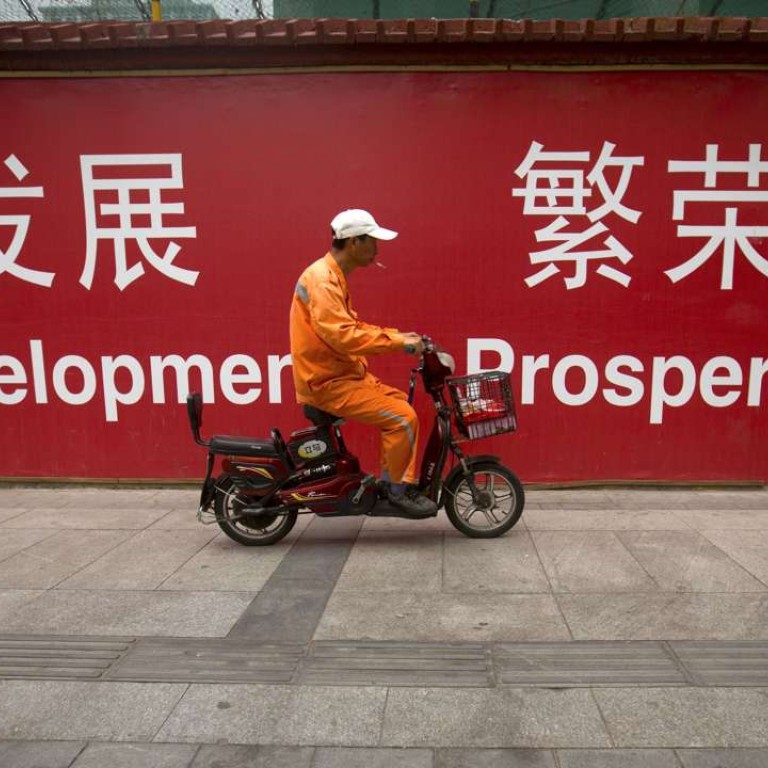
Chinese consumer jitters point to rocky economic ride ahead
Early indicator of sentiment falls to six-month low in August as pessimism grows on mainland about the jobs market and household finances
An early economic indicator suggests there could be more bad news than good ahead for the world’s second-largest economy after a slew of weak economic data in July.
The Westpac MNI China Consumer Sentiment Indicator, a monthly measure of consumer sentiment, dropped to a six-month low in August, reflecting “growing unease among Chinese consumers”, the compilers of the index said yesterday.
While it covers only part of the economy, the indicator is one of the earliest monthly gauges of growth momentum since flash readings of a privately compiled purchasing managers’ index were stopped a year ago.
Sentiment readings have added significance as Beijing tries to change economic gear from heavy reliance on investment to a more sustainable model driven by consumers.
Lower consumer confidence and potentially weaker household spending would add uncertainty to an already complex economic situation, with ministries in Beijing pointing fingers at each other over who should do what to arrest slowing growth.
According to the Westpac MNI indicator, consumer confidence fell 2.2 per cent from July to 111.5 in August, falling below the 12-month average of 114.4, though it remained above the watershed 100 level, meaning that optimists outnumbered pessimists.
There were falls in four of the five components that contribute to the indicator.
Both present and expected gauges of household finances fell, with the latter declining to the lowest level in the survey’s nine-year history.
Consumers were also less optimistic about future business conditions and expectations for the jobs market. The employment outlook indicator edged further into negative territory, declining to a six-month low of 92.2 in August.
“Given the importance of consumer demand as a driver of Chinese growth at the moment, any loss of momentum is concerning and a threat to what is still only a patchy improvement in the wider economy,” said Matthew Hassan, a senior economist with Australian lender Westpac.
“Restoring confidence will be critical to shoring up demand [in the]near term and may also be critical in ensuring a more durable recovery emerges down the track.”
The monthly indicator has been released since April 2007. It covers a minimum of 1,000 respondents aged between 18 and 64 across 30 mainland cities.
There could have been a crowd-out effect of the housing boom in cities like Shanghai on consumption
Liu Xuezhi, a senior researcher at Bank of Communications, said he did not expect a turnaround in economic momentum in August, with dwindling private sector investment still a major concern.
“There could have been a crowd-out effect of the housing boom in cities like Shanghai on consumption,” Liu said. “Expenditure on housing is expected to eat into household savings and consumption.”
But, Huarong Securities analyst Ma Zihui said he still expected retail consumption to remain stable on the mainland this year because the rash of home buying could also boost spending on big-tickets items such as home appliances and renovations.
In July, retail sales growth slowed to 10.2 per cent, compared with 10.6 per cent in June.
Economic data for August is pending, with the latest purchasing managers’ index coming out on Thursday.

